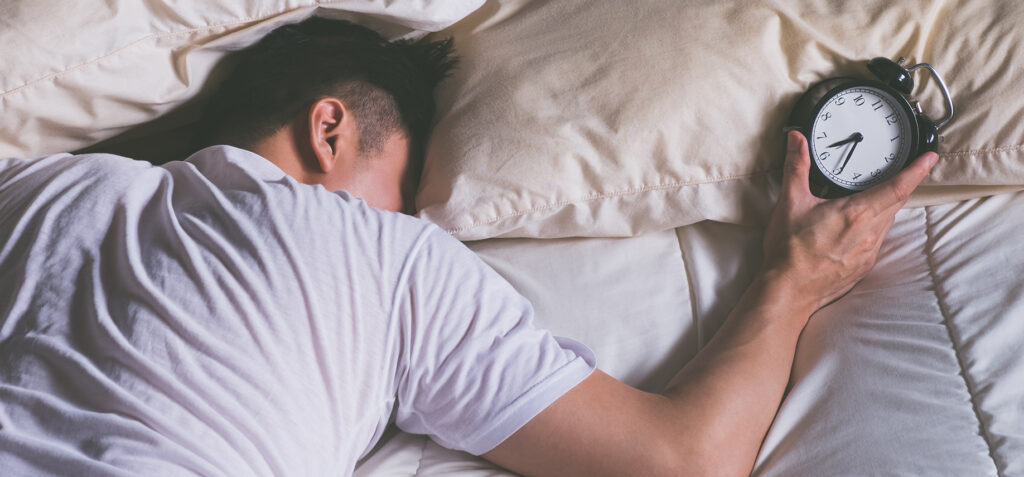
8 Problems Caused By Sleep Deprivation
Introduction
Sleep is a vital component of overall health and well-being. However, in today’s fast-paced world, many people struggle to get enough sleep, leading to sleep deprivation. Sleep deprivation occurs when an individual consistently fails to get the recommended amount of sleep for their age and needs. In this comprehensive guide, we will explore eight problems caused by sleep deprivation, the impact it has on physical and mental health, and strategies for improving sleep to mitigate these issues.
Impaired Cognitive Function
One of the most significant problems resulting from sleep deprivation is impaired cognitive function. Lack of sleep affects attention, concentration, problem-solving abilities, and decision-making skills. It can lead to reduced alertness, slower reaction times, and an increased risk of accidents, both in daily life and when operating machinery or driving.
Increased Risk of Chronic Health Conditions
Sleep deprivation has been linked to various chronic health conditions, including obesity, diabetes, cardiovascular diseases, and immune system dysfunction. Inadequate sleep disrupts hormonal balance, increases inflammation in the body, and impairs metabolic processes, contributing to the development and progression of these conditions.
Mental Health Disorders
Sleep and mental health are closely intertwined, and sleep deprivation can significantly impact one’s mental well-being. Chronic sleep deprivation is associated with an increased risk of developing mental health disorders such as depression, anxiety, and mood disorders. Lack of sleep can exacerbate existing mental health conditions, making it more challenging to manage symptoms effectively
Weakened Immune System
During sleep, the immune system works to repair and strengthen the body’s defenses. Sleep deprivation compromises the immune system’s ability to fight off infections, making individuals more susceptible to illnesses such as the common cold, flu, and even more severe infections. It can also reduce the effectiveness of vaccines, leading to a higher risk of contracting diseases.
Impaired Memory and Learning
Sleep plays a crucial role in memory consolidation and the process of learning. Sleep deprivation disrupts these processes, leading to difficulties in retaining information, reduced creativity, and impaired problem-solving skills. Lack of sleep can also hinder the formation of new memories, affecting both short-term and long-term memory functions.
Emotional Instability
Adequate sleep is essential for emotional regulation and maintaining stable moods. Sleep deprivation can lead to increased irritability, mood swings, heightened stress responses, and a reduced ability to cope with daily challenges. It can also impair social interactions and relationships, as individuals may struggle to manage their emotions effectively
Decreased Libido and Sexual Dysfunction
Sleep deprivation can have a negative impact on sexual health and libido. Lack of sleep can lead to decreased sex drive, hormonal imbalances, and difficulties with sexual function. Fatigue and reduced energy levels can also contribute to decreased sexual activity and satisfaction.
Increased Risk of Accidents and Injuries
Sleep deprivation significantly impairs alertness and reaction times, increasing the risk of accidents and injuries. Whether at home, on the road, or in the workplace, individuals who are sleep-deprived are more prone to making errors, experiencing falls, and being involved in transportation-related incidents.
Improving Sleep Habits to Mitigate Sleep Deprivation
To address the problems caused by sleep deprivation, it is crucial to prioritize healthy sleep habits and improve sleep hygiene. Here are some strategies to promote better sleep:
- Stick to a Consistent Sleep Schedule: Establish a regular sleep-wake cycle by going to bed and waking up at the same time every day, even on weekends
- Create a Sleep-Friendly Environment: Make sure your bedroom is dark, quiet, and at a comfortable temperature. Use earplugs, eye masks, or white noise machines if necessary to block out disruptive noises or light.
- Practice Relaxation Techniques: Engage in relaxation activities before bed, such as reading, taking a warm bath, or practicing deep breathing exercises. These activities can help signal your body and mind that it’s time to unwind and prepare for sleep.
- Limit Stimulants and Electronics: Avoid consuming caffeine, nicotine, and alcohol close to bedtime, as they can interfere with sleep quality. Additionally, limit exposure to electronic devices, especially blue light-emitting screens, before bed, as they can disrupt the body’s natural sleep-wake cycle.
- Establish a Bedtime Routine: Develop a relaxing routine before bed to signal to your body that it’s time to wind down. This can include activities such as gentle stretching, listening to calming music, or practicing meditation or mindfulness.
- Exercise Regularly: Engaging in regular physical activity can promote better sleep. However, avoid exercising too close to bedtime, as it can increase alertness and make it difficult to fall asleep.
- Evaluate Your Sleep Environment: Ensure that your mattress, pillows, and bedding provide adequate comfort and support. If necessary, consider investing in a new sleep surface that meets your needs.
- Seek Professional Help if Necessary: If sleep deprivation persists despite efforts to improve sleep hygiene, consult a healthcare professional or sleep specialist. They can help identify any underlying sleep disorders and recommend appropriate treatments or therapies.
Conclusion
Sleep deprivation can have significant implications for both physical and mental health, impacting various aspects of daily life. By understanding the problems caused by sleep deprivation and implementing strategies to improve sleep, individuals can mitigate these issues and promote overall well-being. Prioritizing healthy sleep habits, creating a conducive sleep environment, and seeking professional help when needed can lead to better sleep quality, increased daytime functioning, and an improved quality of life. Remember, sleep is a fundamental pillar of good health, and investing in quality sleep is essential for overall wellness and vitality.
- CBD Gummies By Just Delta-Indulge in Just Delta’s CBD Gummies: A Flavorful Journey to Wellness! - March 8, 2024
- Ghee vs. Butter: Which Is Healthier? - July 15, 2023
- Is Cottage Cheese Keto-Friendly? - July 15, 2023

